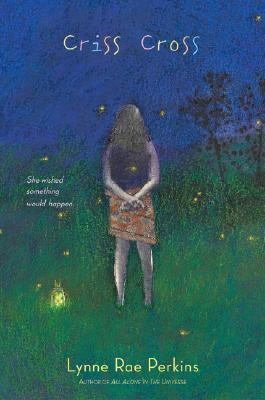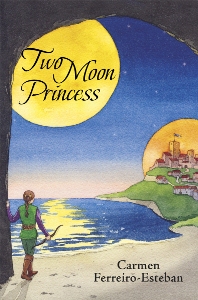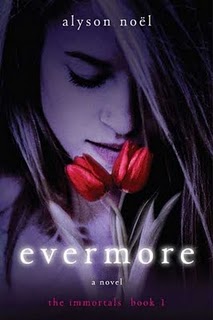This charming Newbery-winning novel really doesn’t have a plot, per se. It is, however, a story. It is just a delightful slice of life of a few teens in a small town in the East in what seems to be the late ’60s. It could be called a “coming-of-age” tale, but that phrase seems to have come to mean some kind of sexual awakening for young people growing up. In this case, it’s truly just a look at how some 14-year-olds are beginning to mature and see life and themselves a little differently.
The story most closely follows Debbie and Hector, and in lesser doses some other friends in their “group.” Debbie makes a wish on her necklace one summer that she will have some interesting new experiences. Hector feels himself a little gangly and rather duckling-like next to his older sister, who looks much like him but seems somehow more attractive and self-confident, grown-up. Hector decides he wants to learn to play the guitar after listening to a talented singer-songwriter-guitar player. Debbie loses her necklace somehow, and it pops up a few times throughout the book, playing a tiny, parallel role to her various interactions and self-discoveries.
The book covers some fun territory, glimpses of life some 30 to 40 years ago, before teens were glued to televisions, cell phones or iPods. They are just outside, hanging out. Sometimes they crowd around one teen’s family truck, listening to radio shows. For adults who have lived through those times (or whose parents did), these little tidbits about shows and songs will ring delightful, familiar bells.(I had to get a record from my father to play a song titled “Poisoning Pigeons in the Park” for my daughters, for example.)
But the book is not only nostalgic for a particular era; it is also nostalgic and absolutely spot-on about the feelings and thoughts that populate the minds and hearts of young people trying to figure out their places in the world. Just the interaction that Debbie has one day with the rather insensitive (usually) football player Dan sparks a good and familiar chuckle as she frets about a black hole opening in her mind when Dan talks to her. Who hasn’t felt that mysterious fleeing of verbal skills when a cute boy or girl addresses them?
Most refreshing is the fact that the book doesn’t address any really heavy issues; a lot of kids growing up don’t experience them anyway. But everyone knows how it feels to grow up, to make that awkward transition from caterpillar to butterfly. The book just gently guides us on a tour of a summer of kids making just that transition, and it is delightful and touching and often very humorous. The author just has a way with words and metaphors and analyzing all the mundane and often meaningless things people — and kids — think about sometimes.
So while some may complain that the book has no plot or that it doesn’t tackle “serious” issues like some others, I can only express my appreciation for such a charming and true-to-life tale. For nostalgia, for laughs, for smiles, this book is a winner.
Rated: Mild, for just three or four instances of mild language.




